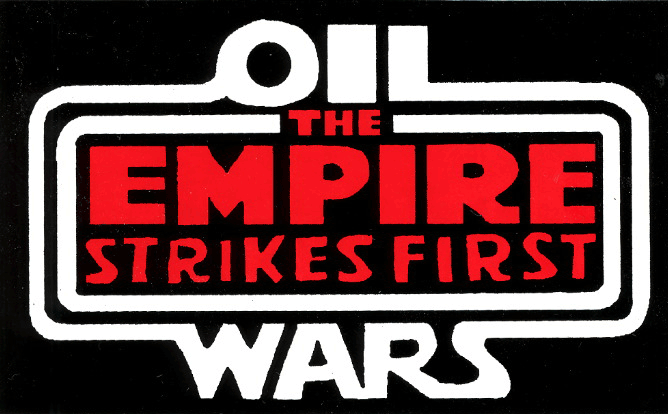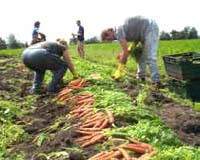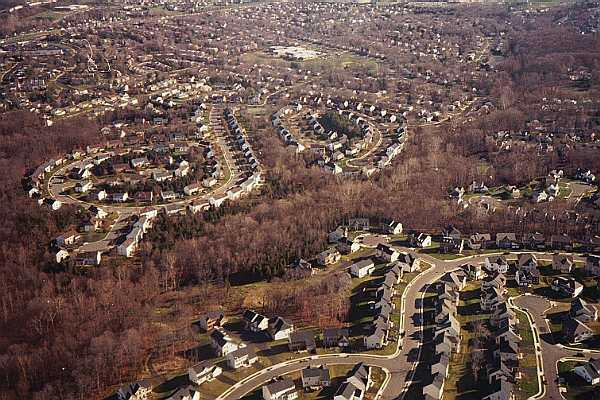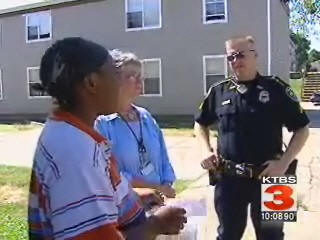All of the steps we’re suggesting here would be wise even if we’re all wrong about peak oil, but if we’re right, they’re critical. They fall into three groups:
- Steps the world must take
- Steps in your community
- Steps you can take within your family
Steps The World Must Take
 Heading Off Wars
Heading Off Wars
We need to address now the reality that petroleum will become precious in ways we can scarcely imagine. We need to acknowledge that it is unevenly distributed around the world and that it is most plentiful in areas where the people who live there don’t care much for the U.S. or for the west in general.
We must acknowledge that there will be those in every culture who cling to their oil-consuming ways until they have no other choice, and that these compulsive “oil-suckers” will advocate going to war to control one or more oil fields. We need to address now how stupid and self-defeating that will be so we can head it off when the next power-hungry oil-soaked leader tries to take us into another futile oil war.
Rebuilding Efficient Transportation
There’s a reason we built rails across our countryside. They make sense as a means of transportation, particularly for transporting heavy materials over land. We need to wean ourselves from our insane dependence on highway trucks for the transportation of materials over land. Trains are about three times more efficient than trucks on a ton-mile basis. Are you asking how we will get merchandise to Wal-Mart without trucks? Good. Now you’re beginning to understand why our big box retail system is doomed. Geography needs to matter again, and it will become important to locate your business close to a rail head. Imagine that.
We need to reclaim the human right to grow and harvest crops and to use crops for next season’s seeds. Farmers are quickly losing the ability to do that now as the result of chemical companies like Cargill and Monsanto that obtain patents on life forms, allow farmers’ seed stock to be corrupted by them (which happens naturally), and then sue the farmers for “infringing” on their patent. How on earth did we let this happen? No one should be allowed to patent life, and the faster we reverse this misguided distortion the better chance we humans have to survive.
 Manhattan Projects
Manhattan Projects
There are three major initiatives we humans need to pursue, each one with the zeal, determination, and resources that the U.S., U.K., and Canada devoted to the Manhattan Project during World War II. These projects are energy conservation, alternative energy production, and population reduction.
Energy conservation
We will continue to long for some new source of energy that will replace petroleum, but there’s just not one out there. We have no choice. At least in the near term (the next 50 years or so), we must learn to live with lower levels of energy. We need to stop building commercial buildings now, because we already have plenty. We need to stop building dwellings that are not drastically more efficient than the ones we’re accustomed to building.
We will need to become accustomed to living in smaller houses that are designed to make the maximum use of passive solar energy and to living in much closer proximity to our neighbors. What are now affluent suburbs may become the slums of tomorrow, because they’re not sustainable as livable towns without cheap oil.
We will need to rethink everything we do, from our love of pets to where and how we live to how we form relationships. Peak oil will change everything.
The best and least disruptive way to accomplish this kind of innovation is to introduce a small tax on gasoline and other petroleum products. The tax should grow a little each year, offset by cuts in other taxes so that the system is revenue-neutral. This will give everyone an incentive to conserve, and the market will begin doing what it does best, encouraging the kind of innovation that can keep our cultures viable without cheap oil.
Alternative energy production
We will use all kinds of stopgap measures in the short and intermediate term as we struggle to carry on without cheap oil. In the long-term, however, we need to search for a more sustainable energy future. How can we drive down the cost and improve the efficiency of solar panels? How can we make wind power more efficient? Is there a future for nuclear fusion? These are the challenging questions with which our finest minds need to be wrestling; let’s encourage them to get the kind of technical and scientific savvy they will need to address them, and then give them the tools and the incentives they need.
Population reduction
No matter how you plot it out, the world has too many people on it. Cheap oil has lulled us humans into believing that the normal rules and limits of hunger, disease, and land use don’t apply any more; during the oil age we have increased the world’s population from about 1.3 billion to about 6.5 billion today. The world probably can’t sustain a population of more than 2 billion or so without cheap oil, so we are in for a brutal adjustment. If we’re lucky, it will be a humane reduction we have planned by sharply limiting births. If we’re not lucky, it will be from starvation, infectious disease, or war.
We need to get over our religious squeamishness about family planning now and start reducing the size of families. “Natural Family Planning” is a crap-shoot, and the sooner we admit that as a society, the better off we all will be. We know how to keep from having babies, and we just need to get about doing it. Aversion to family planning today is Byzantine, superstitious, and fundamentally immoral. There’s no reason why any family should have more than two children or two births, whichever is less. As cultures, we need to bring shame down on those who are too stupid or too selfish to realize this. Any nation that doesn’t immediately implement policies to limit births needs to be treated as what it is, a dangerous outlaw that needs to be sanctioned.
Yes, we know this sounds callous and cruel. Lee grew up in a family of six and has wonderful memories of his large family. In fact, he was the sixth person (the baby), so the kinds of limits we’re advocating would have kept him from being here. But the survival of our species is at stake, and we just don’t have any more time to mess around.
Don’t Think It Can’t Happen
When we talk about these steps with our friends, someone usually responds that what we’re suggesting is just a pipe dream, that we won’t act until it’s too late. That’s possible, but it won’t be because individuals are unwilling to change. A poll by the BBC in November of 2007 showed that 82% of the people in the world thought it would be necessary for people to make sacrifices to control climate change and were willing to make those sacrifices. And that’s not just in Scandinavia and France. That’s in China, the U.S., and India too. We humans know we need to change and are willing to do so. What we lack is leadership.
Steps Your Community Can Take
Community Supported Agriculture
In the years to come our current system of transporting food an average of 1500 miles before it gets to your plate will crumble, because it’s dependent on a constant fresh bath of cheap oil. Your food will come from a farm much closer to your home and, increasingly, from your own garden. Reach out to farmers who live near your neighborhood and encourage them to take advantage of Community Supported Agriculture. The basic model of Community Supported Agriculture is that you pay in advance for a market basket of food delivered periodically (typically once per week). Sometimes the delivery is to your door, and sometimes it is to a central pickup point. The advantage to the farmer is that there’s no concern about getting paid and fewer middlemen to deal with. The advantage to you is that you get much fresher produce (typically less than a week after picking rather than up to eight months after picking in your supermarket), you are supporting the future of agriculture in your community, and you are reconnecting with the land where you live. We used the Local Harvest site to locate quickly the CSA farms near our home.
 Stop Suburban Sprawl
Stop Suburban Sprawl
We can’t keep living in far-flung communities that require us to drive a gasoline-powered vehicle (or any personal vehicle, for that matter) 30 minutes or more each way, every day, to get from home to work and back again. The gleaming, sterile suburban neighborhoods of today are very likely the future slums of America (and increasingly, the world). Communities need to resist the urge to permit more and more of these bedroom communities that we already know are doomed, and the ignorant hopeful who keep squandering their savings and taking on debt to invest in them are victims. Just say no. Nancy Reagan would be proud.
And while we’re on the subject of sprawl, you have figured out by now, we hope, that we have drastically overbuilt our roadways, right? Those traffic arteries that are so choked with traffic today will soon be vast expanses of concrete and asphalt begging for use. Communities need to declare an immediate moratorium on new highway construction. It will be hard enough to maintain the roads we’ve already created when we can’t get cheap oil; we surely don’t need to waste scarce resources building (or widening) any more.
And if you’re in the business of building roads and highways, this is your wakeup call. Time for career counseling, friend.
Let’s make communities bicycle-friendly again. There are plenty of people who would love to bike from their home to their office, but their spouses won’t let them because the cars, trucks, and SUVs make the route too dangerous. That’s backward. Bicycles and pedestrians should own the road, and automobiles should have to work around them.
Design Livable Communities
Figuring out what kinds of communities will be livable in the post-petroleum era isn’t all that complicated; you just think through what kinds of communities can survive and thrive without using lots of petroleum. Here’s our list of attributes. You’re welcome to share yours too.
- Towns that are easily reached by well-maintained rail but are small enough that all points are within easy proximity to naturally productive farmland (that is, that’s not dependent on chemical fertilizers or pesticides or power-assisted irrigation).
- Nearby fresh water.
- A compact, healthy, walkable, commercial center.
- Walkable neighborhoods.
- A reasonably homogeneous population so there’s not an irreconcilable clash between greedy haves and jealous have-nots.
- A climate that is temperate enough to allow low-energy living 12 months of the year.
If you’re ready to get serious about helping your community prepare for the post-petroleum challenge, consider the Transition Town model in use now in towns like Kinsale, Ireland and Totnes and Falmouth in England. These communities are beginning to study all the ramifications of the end of cheap oil and to fashion an Energy Descent Action Plan. The goal is to become proactive and move in a sustainable and compassionate way toward the future rather than to be dragged kicking and screaming into it.
Steps You Can Take Within Your Family
Reduce Energy Consumption
Time to get in training. Those who have already begun adjusting will have a leg up on those who blithely continue their fuel-guzzling ways. Invest in a programmable thermostat. Turn off the air conditioning completely and use ceiling fans instead. Wear warm clothes in the winter and cool ones in the summer. Make fewer trips in your car. Trade your car in for a smaller one, or live without a car and take the bus. Move closer to your job, or tele-commute. Buy locally grown food instead of the wax-coated stuff they sell in your supermarket.
Relearn Forgotten Skills
Your great-grandparents knew how to survive in a low-energy way, because it’s the only life they knew. You will need to know too. Kneel at the feet of every old person you know and beg them to tell you how to survive. They will appreciate it, and you will be grateful later.
Raising Vegetables and Fruits
It really doesn’t take a lot of land to grow a whole mess of vegetables; it just takes a lot of work. Get busy now and learn to grow vegetables and fruits while failure won’t mean disaster. Learn what varieties grow well in your back yard, what bugs you want to encourage (hint: the bugs you need are much more plentiful than the ones you don’t). Learn how to protect your food crops from wildlife. Learn when to harvest.
 Putting up Vegetables and Fruits
Putting up Vegetables and Fruits
It’s a new day, and you won’t be able to get grapes from 2,000 miles away in February. Hey, we love fresh strawberries in December too, and we feel your pain. But you will be able to eat, and well. We need to learn to can again. (And as with growing, we want to learn while we can still screw up without starving).
Start with fruits; they’re much simpler and more forgiving. Start with a small quantity and work your way up to the larger amounts. If you know someone who already understands this, ask them if you can help them so you can learn. They will probably be delighted if you’re willing to help peel and chop (it’s tedious). Then go home and practice what you’ve learned right away before you forgot everything you’ve just learned.
Seek Sustainable Careers
You’ve already seen above a description of one career (in road and highway construction) that’s not sustainable. Here are some others: automobile manufacturing and sales, retail management, plastic surgery, college teaching (particularly in the liberal arts), real estate developer, truck driver, airplane pilot and flight attendant, and architect, and any other profession that deals with luxuries. Examine your own career and those of the people you love in terms of how dependent they are on cheap energy. Here are some careers we expect to be much sought-after for one reason or another: police officer and firefighter, nurse, farmer, well-driller, and large-animal veterinarian. It may not be a career, but the post-petroleum era will be kind to those who are “handy” with plumbing, carpentry, electrical, and general repairs. This will be a time when it’s good to be able to repair a lamp, fix a leaky roof, and get an extra few months out of a pair of shoes.
We first thought the post-petroleum era would be a bad time to be in the real estate business. Then we realized that this may be the biggest short-term opportunity of them all. When peak oil fully kicks in and we all begin realizing that we are facing a future of low or no economic growth, there will be an unprecedented and terrifying selling panic in real estate. We are facing a buyer’s market the likes of which no one has ever witnessed before. If you’re a real estate agent, begin gearing up for a short, glorious run of business, and practice persuading your sellers to lower their price. It will be brutal to watch, but it will be heaven if you want to make money selling real estate in the suburbs.
Get Healthy and Stay That Way
The post-petroleum world will have nothing like the medicines and medical procedures available to it that the developed world enjoys today. Coronary bypasses, stints, hip replacements, and knee replacements will be unavailable to all but the very rich, so we will be more or less dependent on staying healthy and avoiding the need for complex medical help. One advantage, if you can call it that, of the brutality of the post-petroleum era is that obesity and Type II diabetes will be much less of a challenge than they are today, because both are the product of our superabundance of highly processed food. We will also be more likely to get regular exercise, because we will do much more walking and bicycling than we do today.
And while we’re on this subject, we know from research that people who are overweight by as little as 30 pounds are on average not only less healthy but less wealthy as well. They don’t spend more on food, but they do spend more on life insurance and medical expenses, and they are less likely to get hired as well as to receive choice assignments and promotions. So it makes sense anyway, even if we’re all wet about peak oil.
 Reconnect With Your Community
Reconnect With Your Community
We’ve grown accustomed to retreating into our oh-so-private homes and oh-so-private automobiles, and we’re neither aware of nor interdependent with our neighbors. We haven’t had to be, because cheap energy brought us everything we needed. When we can’t run down to Publix or Home Depot and pick up everything we need, we need our neighbors more, and they need us. Learn about the farms near your home; know and support your local police. Get to know the churches, mosques, and synagogues that form the spiritual backbone of your community. They will be a crucial component of its stability in the post-petroleum era. Understand your latitude and longitude, and know the watershed in which you live.
Travel
This is counter-intuitive, because it uses lots of energy, but if there’s another part of the world you want to see, by all means go there now. Fly. See another country. Experience another culture. And while you’re in other nations, study the way the people live there; you may be able to learn some things you can share with your community when you return. And who knows? You may decide to live there because the community is more sustainable.
Here’s an interesting one: when cheap oil is no longer available and we can no longer travel freely, we’ll have our hands full dealing with all the problems we will face, but we will have far less concern about global terrorism. In a twisted sort of way, terrorism depends on cheap oil too.
Spread the Word
The better we understand how peak oil is going to change our lives, the better prepared we will be for it. Share these ideas with your family, your co-workers, your neighbors, and your friends. These concepts are foreign, and they challenge the notions that have driven our culture for generations, so everybody rejects them the first few times they hear them; we know we sure did. Changing minds takes hearing and reading them in several places from different people and expressed in different ways before our minds can even begin to struggle with the core concepts. Plant seeds. Live with having people think you a kook. Eventually they’ll realize you’re on to something.